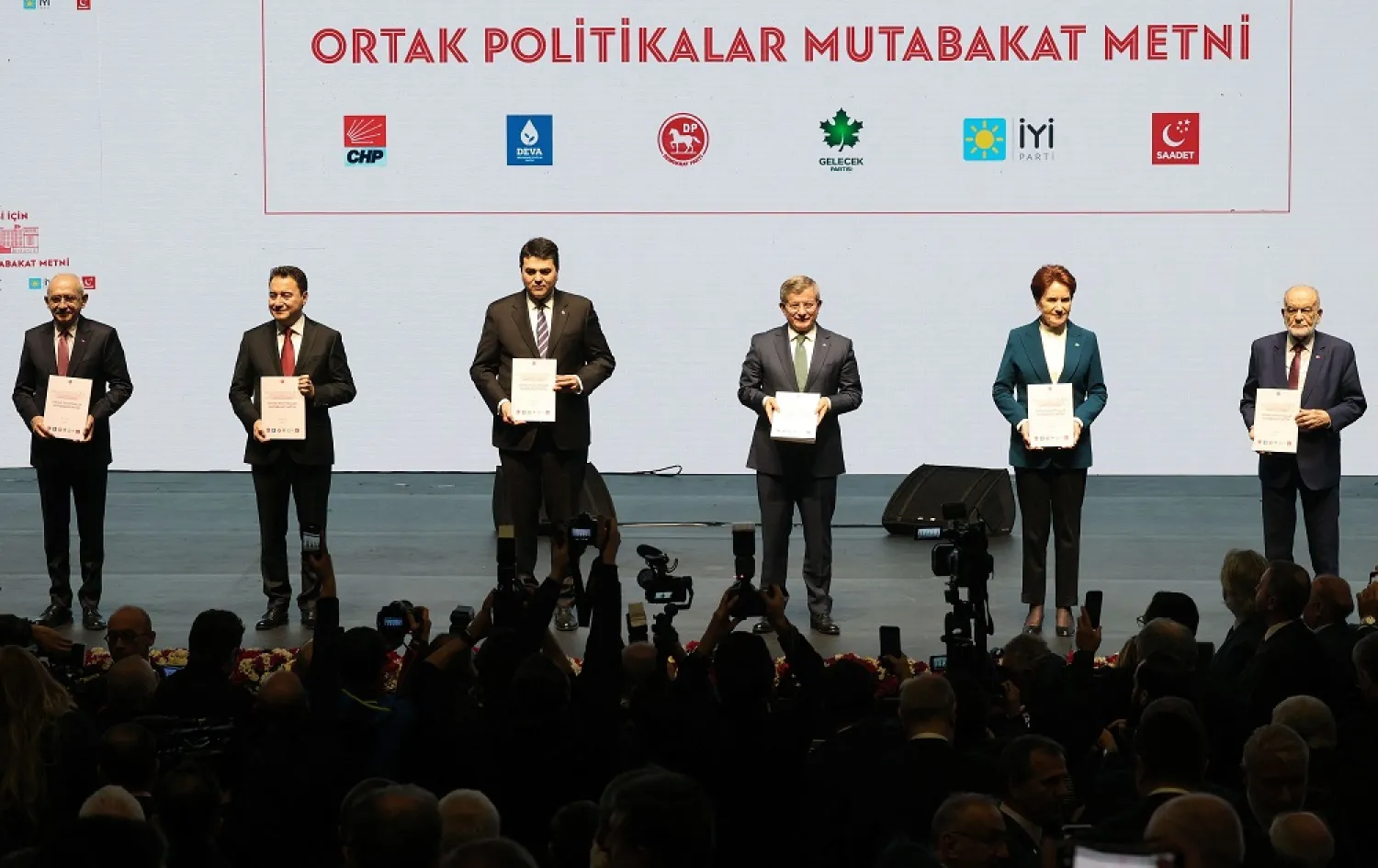The leaders of a coalition of six Turkish opposition parties, known as the Table of Six, announced on Monday their program for presidential and parliamentary elections scheduled for May 14.
Their plan includes restoring the parliamentary system of government and reducing presidential powers.
In a 244-page document, the coalition introduced 2,300 common goals regarding opposition work in the fields of law, justice and judiciary; public administration; fighting corruption and promoting transparency; economy, finance and employment; science, research, development and innovation; entrepreneurship and digital transformation.
The goals also covered sectoral policies, education and training, social policies and foreign, defense, security, and immigration policies.
Moreover, the document promoted the transition to a strengthened parliamentary system for an effective and participatory legislative authority, and the abolition of the right of veto currently granted to the president under the presidential system.
According to the opposition, the president should only be given the right to return laws to parliament in the event of their objection to some articles instead of being allowed to veto legislation.
Additionally, a new president must be elected every seven years. Elected presidents must also cut ties with their political parties after taking office. They are required to retire from politics after their term ends.
The MoU also called for the abolition of the system of pretrial detention and strict scrutiny in exceptional cases. It promoted freedom of thought, opinion and expression, and the completion of the settlement of grievances arising from emergency decrees.
The Table of Six is composed of the Republican People’s Party (CHP), Good Party, Felicity Party, Democrat Party, Democracy and Progress Party, and Future Party.









